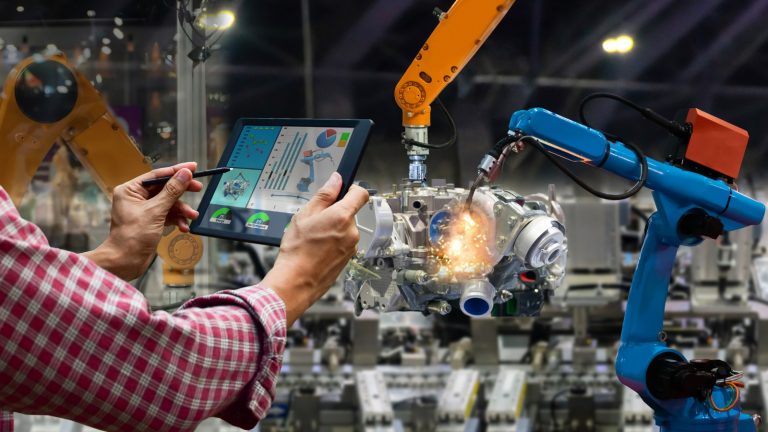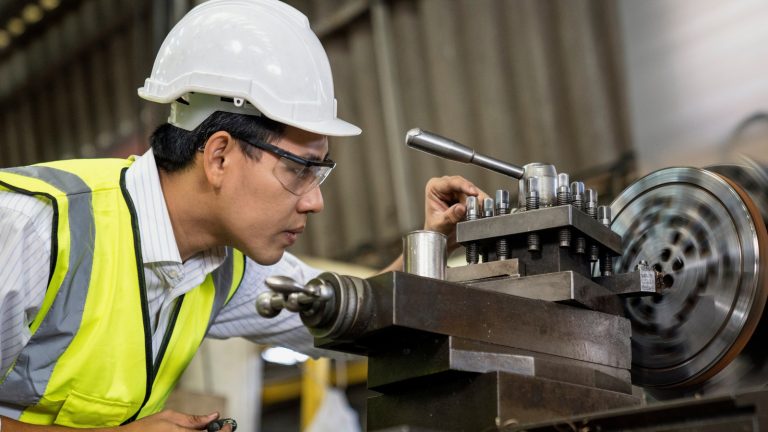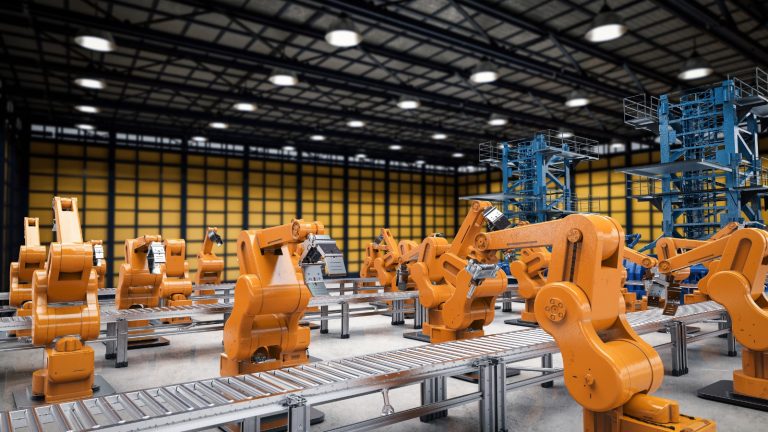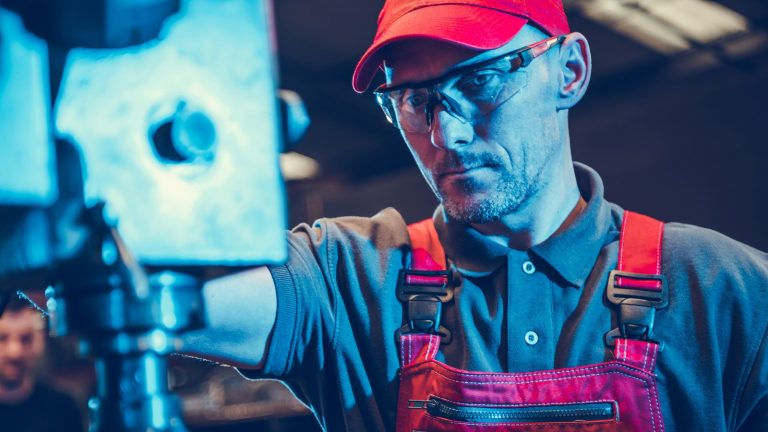It is widely known that Singapore has become the centre of manufacturing executions in the region due to its nonstop manufacturing evolutions over decades. However, Singapore encounters various challenges, from economic, technological, and workforce-related to supply chain during their operational missions. Is Singapore ready to battle them in 2024? What is the outlook for the Singapore manufacturing industry in 2024? What will be the future of manufacturing in Singapore
In this article, we are going to reveal everything about key industrial manufacturing trends for Singapore in 2024. Is Singapore a manufacturing hub as it seems to be? If so, what is the Singapore Industry 4.0 roadmap for newly faced challenges? You will find your answers, for sure.
Understanding the Need for New Trends in Singaporean Industrial Manufacturing

Before going further on the main subject, let us explain why this country needs industrial manufacturing trends all of a sudden. One of the main reasons is changes in trade policies, tariffs, and trade agreements, for sure. They can impact market access and export opportunities for Singaporean manufacturers, requiring them to adapt their strategies accordingly.
On one hand, embracing Industry 4.0 technologies, such as automation, robotics, and artificial intelligence, is essential for Singapore’s manufacturing competitiveness. However, the transition to digitalisation requires significant investments and changes in organisational culture. So this will not be a simple thing.
On the other hand, emerging manufacturing hubs in neighbouring countries give tough competition to Singapore’s manufacturing sector. They utilise some sophisticated technologies in the industrial sector.
Above anything else, the most highlighted challenge is that the country is facing a shortage of skilled labour in certain manufacturing sectors. Attracting and retaining talent in areas like engineering, data analytics, and advanced manufacturing technologies is crucial for industry growth.
Another fact is that disruptions in the global supply chain, whether due to natural disasters, geopolitical tensions, or pandemics, can impact manufacturing activities in Singapore. This was highly visible during the era of COVID-19. The main reason for this is that they rely heavily on imports for raw materials and components.
Top 6 Industrial Manufacturing Trends in 2024

Sustainable Manufacturing
We know that smart manufacturing in Singapore is the theme of their industrial context. However, the manufacturing realm understood that there is a keen need to adhere to manufacturing sustainability trends, as no industry can survive without these ethics.
The government’s strong commitment to environmental sustainability and stringent regulations have compelled manufacturers to adopt eco-friendly practices. With rising global awareness of climate change and environmental degradation, consumers and businesses increasingly prioritise sustainable products and processes. They started putting an increased focus on sustainability and carbon neutrality.
Plus, sustainable manufacturing offers long-term cost savings through energy efficiency, waste reduction, and resource optimisation.
Singapore’s reputation as a forward-thinking, innovation-driven economy further lends a hand to companies integrating sustainability into their operations. This attracts investments and enhances competitiveness on the global stage.
Consequently, this has become not just a trend but a strategic imperative for Singapore’s industrial sector in 2024.
Automation and Robotics
As far as the industrial sector in Singapore is concerned, you can see there is an interwoven bond between automation, robotics, and manufacturing.
With a focus on enhancing productivity, improving quality, and reducing labour dependency, manufacturers increasingly adopt automation and robotics technologies. Singapore’s proactive government policies, such as grants and incentives for automation adoption, encourage companies to invest in these advanced solutions. No matter what manufacturing domain your company belongs to, you are always encouraged to employ industrial robotics and automation robotics to simplify tasks.
We witnessed a sudden development of warehousing robotics and construction robots during the pandemic period. This is an outstanding strategy to boost industry resilience against disruptions like pandemics, as minimum human interventions are involved when you implement process automation robotics.
This trend not only boosts efficiency and competitiveness but also positions Singapore as a leader in advanced manufacturing and innovation on the global stage.
Industrial IoT
This has emerged as one of the most popular manufacturing trends in Singapore, evolving to address complex operational challenges and enhance efficiency. In 2024, the integration of IoT technologies will evolve beyond basic connectivity to encourage advanced data analytics, predictive maintenance, and real-time monitoring of manufacturing processes. Though there were several other manufacturing technology trends in the scenario, this has gained attention due to its unshaken data streaming ability.
We know that Singapore has been dreaming of becoming a smart nation. With the adoption of industrial IoT, the whole industrial sector is promoting digitalisation and innovation in the manufacturing sector.
No matter whether it is electronic manufacturing services, healthcare, or semiconductor production, you will gain an efficiency advantage through the combination of artificial intelligence and big data analytics with IoT. This has unlocked new possibilities for optimising production workflows and improving decision-making.
Digital Transformation through Industry 4.0
Among all the technologies developed up to date, there is nothing like Industry 4.0 for the whole industrial manufacturing domain. This is undoubtedly one of the best digital manufacturing trends that has ever been invented.
Industry 4.0, which was first motivated by the merging of automation and data exchange, has progressed to embrace a comprehensive methodology, capitalising on technologies like artificial intelligence, the IoT, and cloud computing.
This evolution backs up unshaken connectivity across the entire value chain, from design and production to distribution and customer service.
As a result, Singapore’s manufacturing sector stands at the forefront of digital transformation, driving efficiency, agility, and sustainability while maintaining its position as a global manufacturing hub.
Reskilling Workforce
When there is a state-level conversation about Singapore’s manufacturing workforce, the concern about reskilling and upskilling for a future-ready workforce has always been involved.
Reskilling the workforce has become a trend in manufacturing in Singapore recently. This targets to address the demands of an increasingly digital and automated industry landscape by the end of 2024.
The strategic planning primarily focuses on basic skills upgrading for the industrial sector. However, this trend has evolved to develop a wide range of manufacturing skills, including digital literacy, data analytics, and proficiency in emerging technologies like robotics and automation.
Singapore’s proactive approach involves collaboration between government agencies, educational institutions, and industry partners to design and implement targeted reskilling programmes.
Reshaping Supply Chain Management
Global supply chain disruptions are the main reason hidden behind this sudden enthusiasm or trend.
Manufacturing companies try to optimise logistics and inventory management, and this trend has evolved to prioritise resilience, agility, and sustainability. Singaporean manufacturers have now started employing advanced technologies such as blockchain, artificial intelligence, and IoT to enhance supply chain visibility, traceability, and predictive analytics.
Plus, there is a growing emphasis on diversifying sourcing strategies and strengthening local supplier networks to mitigate risks associated with geopolitical tensions and natural disasters from the government’s end.
Cerexio Solutions as a Scalable and Flexible Answer

Cerexio solutions are powered by robust Industry 4.0 technologies and are highly adaptable to any manufacturing shape in today’s industrial manufacturing world. To empower the novel digital manufacturing trends, we have developed sophisticated solutions like MES- Manufacturing Execution System, Production Yield Optimiser System, etc. while bridging manufacturing and sustainability through one technological arrow.
Clearing the Burdens of Industrial Manufacturing Through New Trends

Technology is a great way to win your battles in the business world. Industrial manufacturing sees many such challenges during their operational frameworks, and the manufacturers can easily battle this war with the outstanding help received through such new trends and solutions. One trend can become the perfect solution if you incorporate it strategically.
